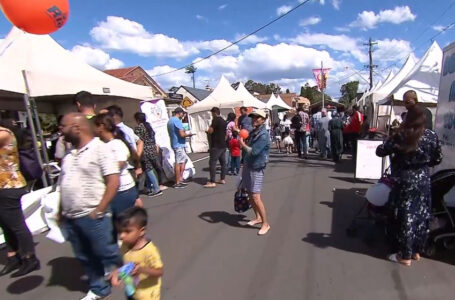WHAT DOES A ‘DIGITAL TRANSFORMATION MINISTER’ DO?
Everything these days has to be smart. Smartphone, smartwatch, smart TV etc. Now the buzzword in politics is ‘smart city’. In his cabinet reshuffle, Prime Minister Malcolm Turnbull appointed a new minister for ‘digital transformation of cities’. In this article, we ask just what such a ministry could be in charge of doing.
In a cabinet reshuffle that happened in February, Prime Minister Malcolm Turnbull appointed a new minister for digital transformation and cities. The man he chose for the job is Angus Taylor, who he announced will ‘serve as the Assistant Minister to the Prime Minister with special responsibility for Cities and Digital Transformation.’
Now, government is often criticised by cynics (who will call themselves realists) that there are too many ministers as it is. So what does a digital transformation minister actually do, you may ask. Here’s what the Prime Minister had to say on the matter:
‘These are two key areas of government that will continue to be driven under my leadership and my department in the future,’ he said. ‘The government needs to be clever with its services and systems if we are to deliver better health, education and welfare while containing growth in spending.’
If this sounds too much like a panacea, it’s probably at worst a buzzword that has taken politicians by storm. Like in 2014, when Indian Prime Ministerial candidate Narendra Modi promised that there would be 100 smart cities in India during his term. No one seemed to know then – or know very well now – what the term ‘smart city’ actually meant, or what a ‘smart city’ could do that a ‘normal city’ couldn’t.
‘Our capital cities and regional cities struggle with affordability, amenity and congestion,’ said Angus Taylor, the new minister. ‘This must be a priority for the Federal Government as a major investor in transport infrastructure.’
We take this to mean that the ministry will be responsible in taking control of the intra-city transport systems and digitising them with a suitable investment. They may also look at automating some public sector services in order to bring down long-term costs and therefore improve the affordability of these services for the common man.
In all, this sounds very much like the Smart Nation portfolio in Singapore and the aforementioned smart city initiative in India. It looks like politicians are quick to include the word ‘smart’ in everything they do in order to cash in on the ‘smart’ bandwagon that is doing the rounds in the wake of the smartphone revolution.







